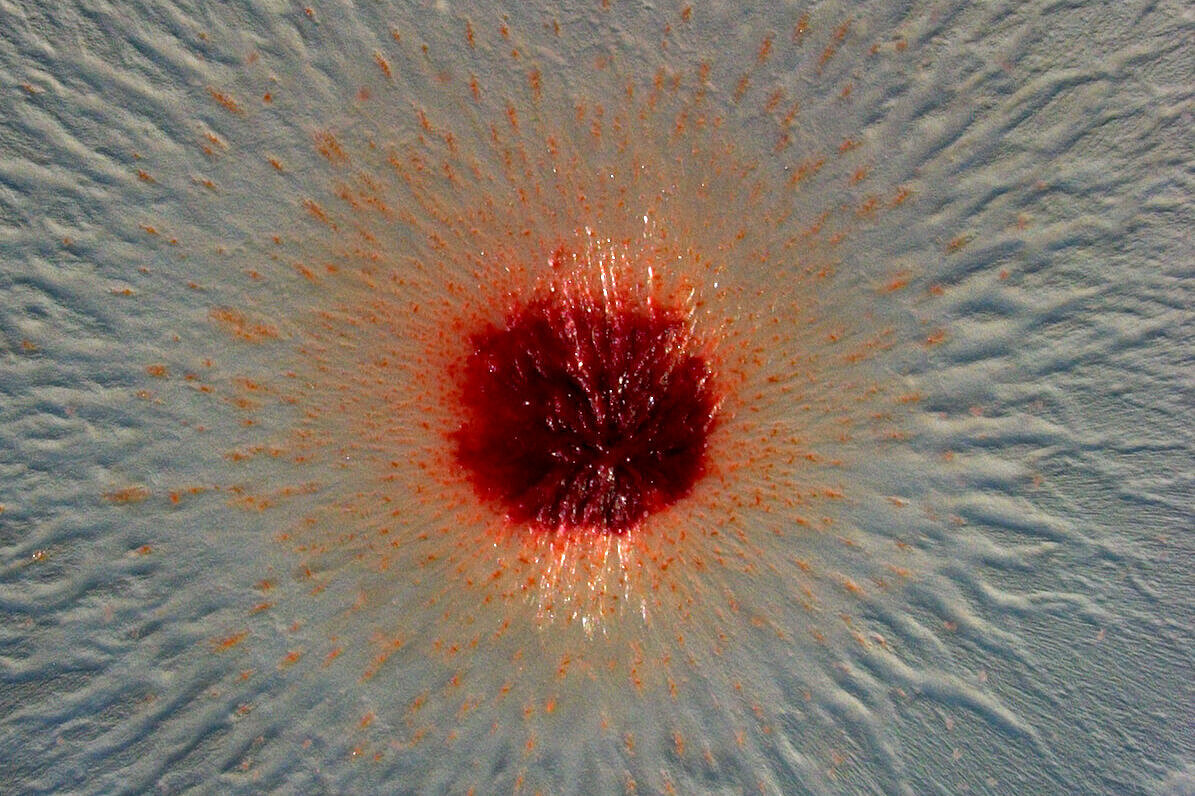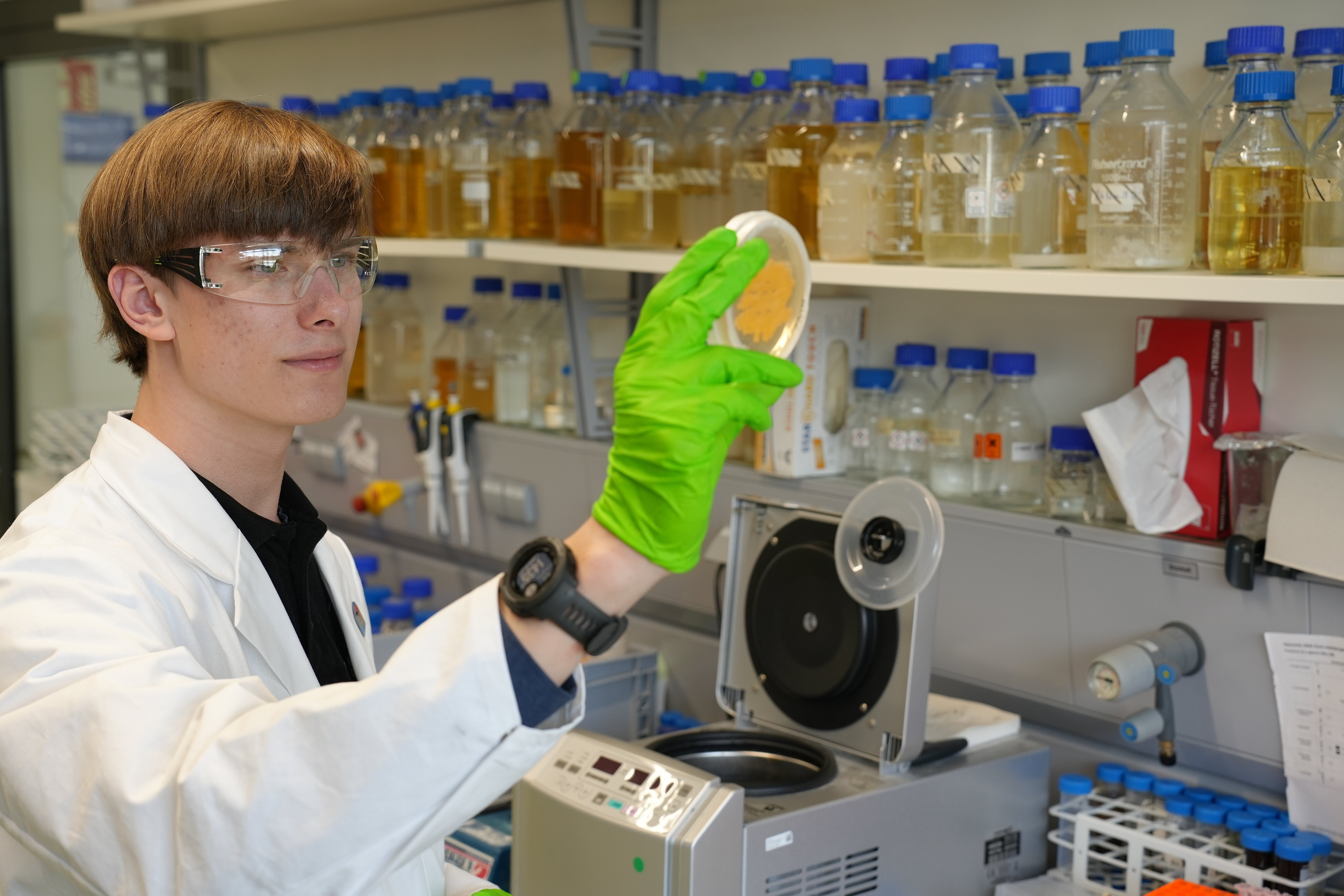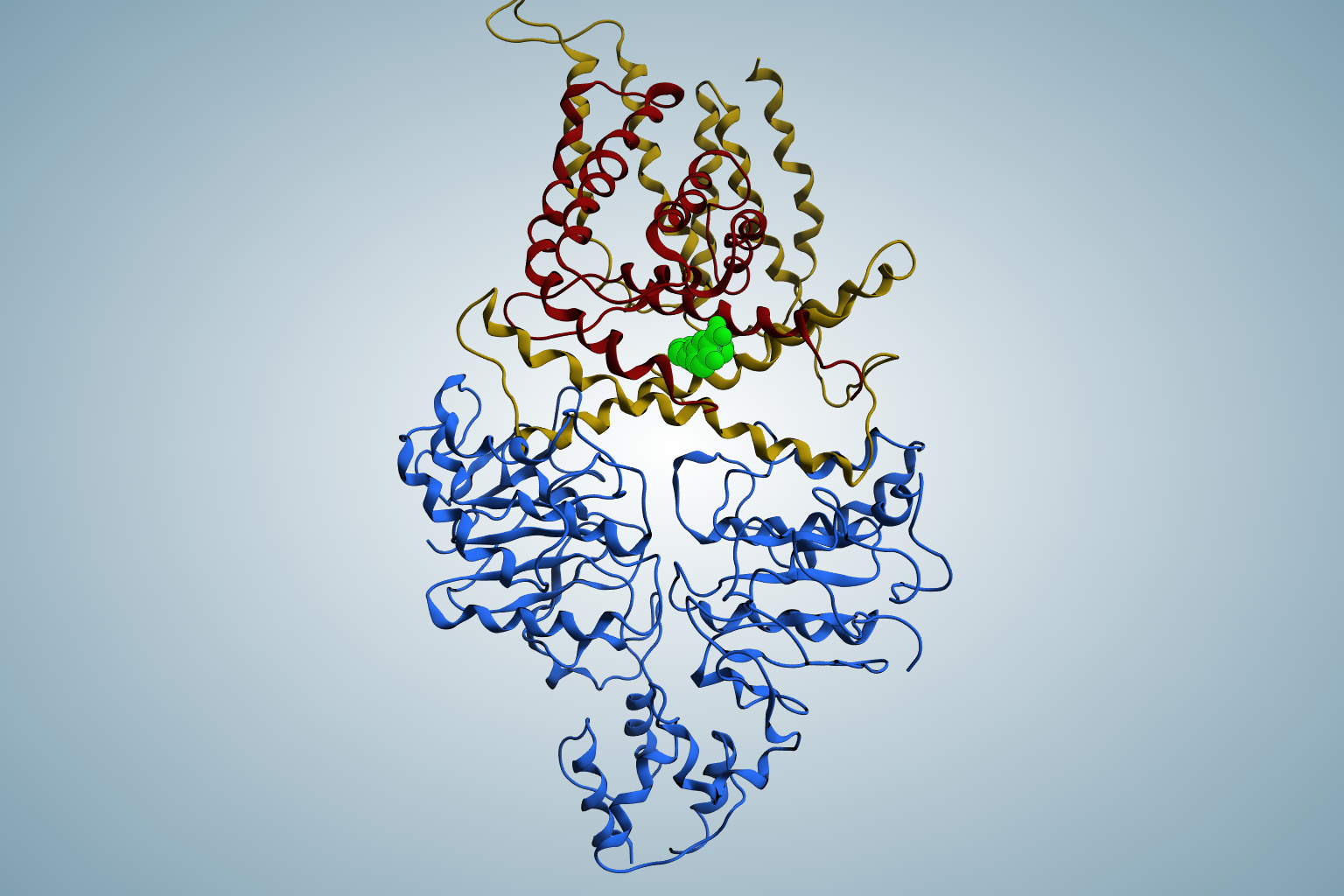It is long known that bacterial pathogens are increasingly developing resistance to pharmaceutical agents. Nevertheless, since the 1980s, no new active ingredient has been discovered that can combat resistance in gram-negative pathogens in the long term. In addition to economic factors, this is due to the fact that the search for new antibiotics is extremely difficult. Researchers at the HIPS are focusing on the previously little-studied myxobacteria as a source of new active substances. These predatory bacteria produce antimicrobial agents to prey on other microorganisms and use them as a source of nutrients. A team led by HIPS department head Prof. Rolf Müller has now succeeded in isolating a previously unknown family of myxobacteria that has particularly high biosynthetic and therefore also pharmaceutical potential. The HIPS is a site of the Helmholtz Centre for Infection Research (HZI) in collaboration with Saarland University.
Until now, the order of myxobacteria consisted of seven families - with the four representatives of the newly isolated Pendulisporaceae, the eighth family has now been added. The new strains were found in soil samples from the Philippines and Zambia. The Pendulisporaceae differ morphologically from all previously known myxobacteria and are characterized by a sporulation behavior that researchers previously knew from another genus of bacteria, the streptomycetes. Dr Ronald Garcia, senior microbiologist from the Department of Microbial Natural Products at HIPS says: "The Pendulisporaceae show morphological features of streptomycetes, but phylogenetically they clearly belong to the myxobacteria. This combination is unique and we hope to learn a lot more about the complex lifestyle of myxobacteria from this family."
Using genetic analyses, the researchers also discovered that the new bacterial family has enormous potential for the production of natural products: the discovery of the Pendulisporaceae increased the number of known genetic blueprints (so-called biosynthetic gene clusters) for natural products from myxobacteria by as much as 9 percent. "Natural products are a promising starting point for the development of numerous therapeutics. In the field of antibiotics, more than 70 percent of all approved active substances are natural products or derivatives thereof," says Rolf Müller, Scientific Director and Head of the Department of Microbial Natural Products at HIPS. "We have already been able to isolate exciting molecules from the isolated representatives of the Pendulisporaceae that we have never seen before – we are very excited to see what else this family has to offer us."
Some of the molecules found in the current study show good activity against bacterial and fungal pathogens as well as antiviral properties in laboratory tests. In the coming years, the Pendulisporaceae and the natural products they harbor will be further researched at the HIPS and new drug candidates will be identified. The chances of this are good: 98 percent of the gene cluster families found in the new strains are natural product blueprints that are not yet available in public databases.




